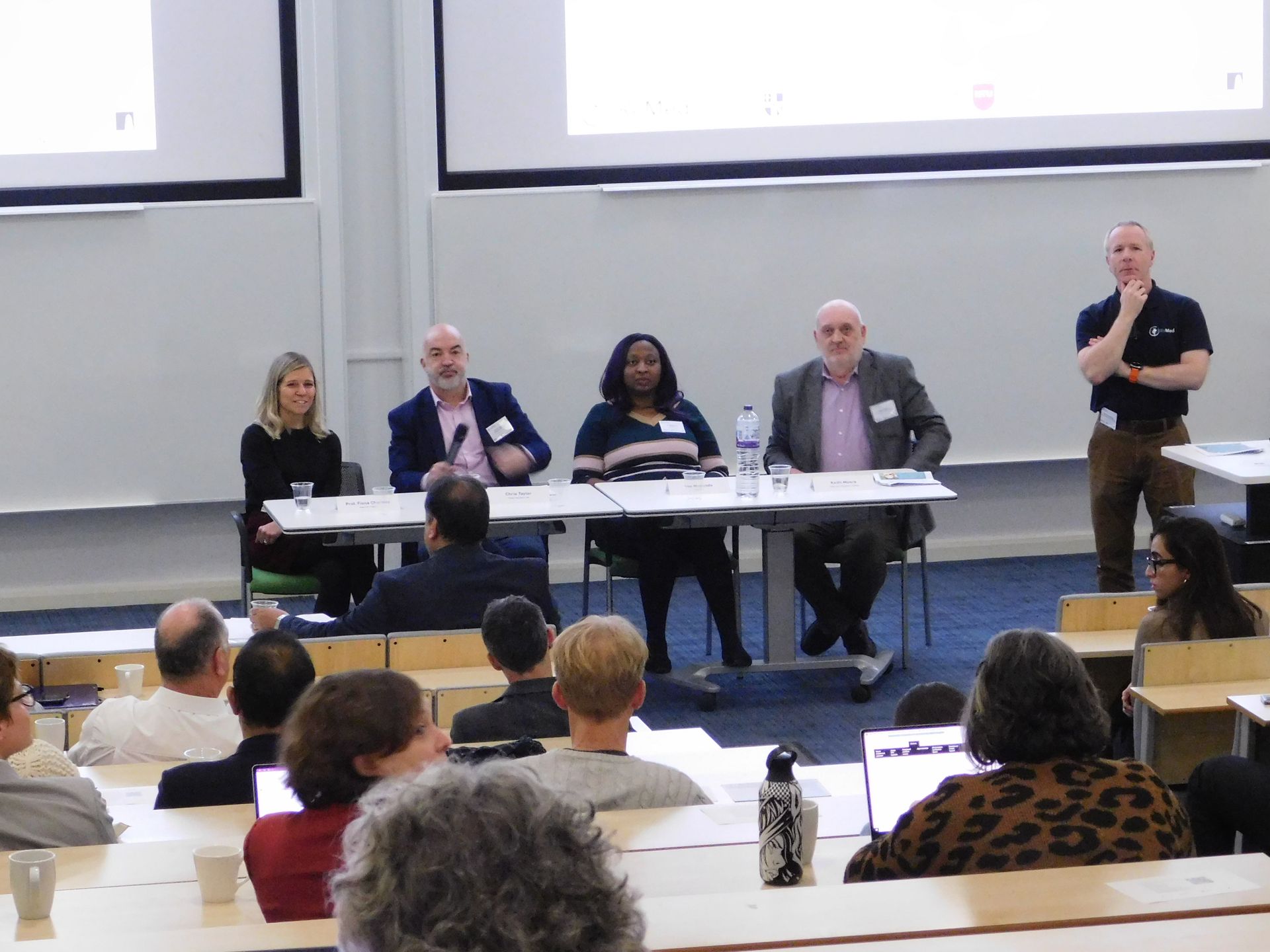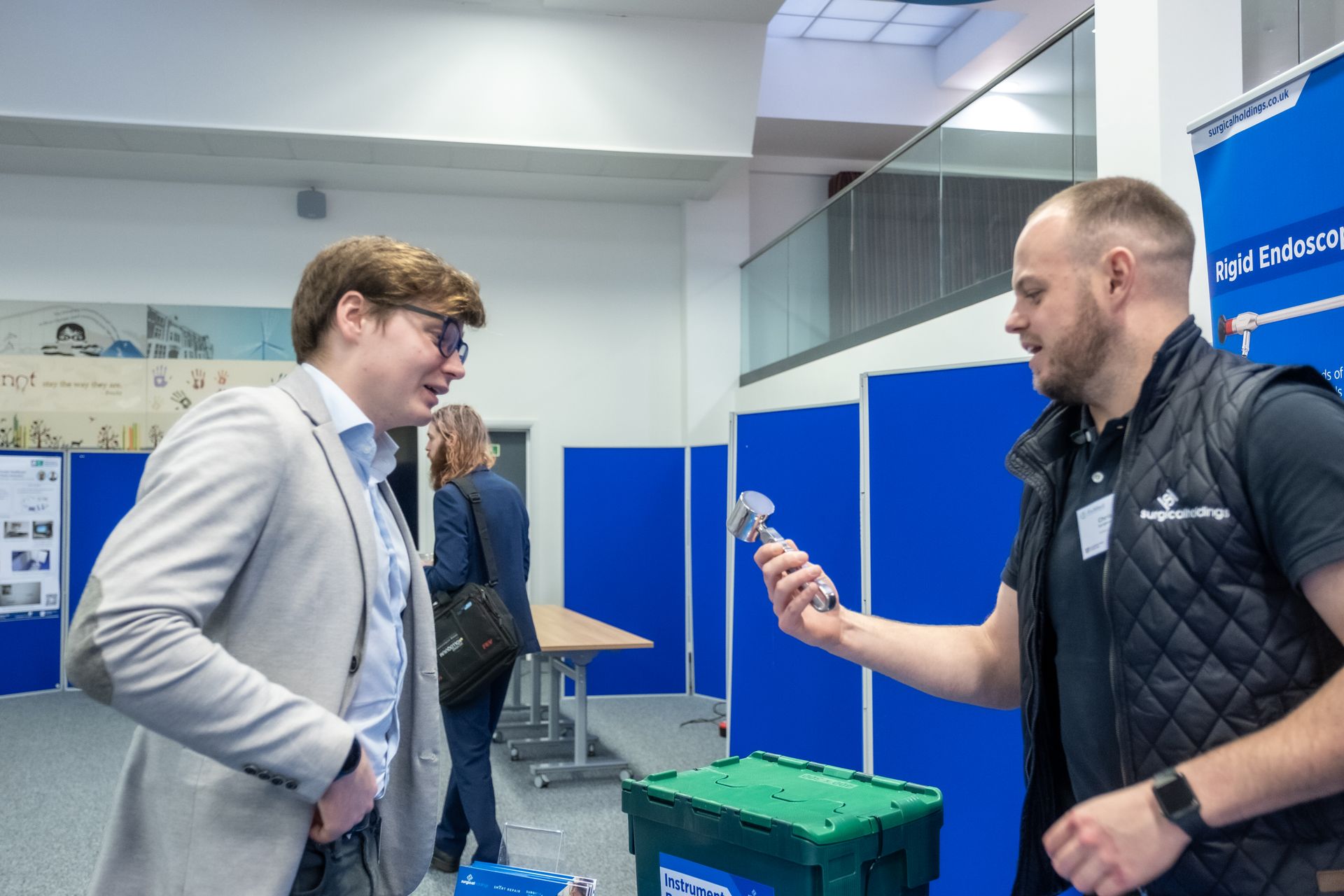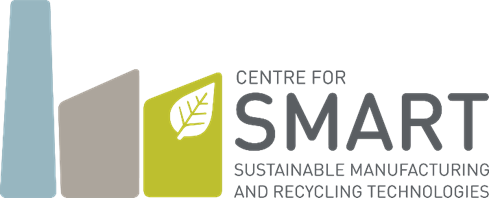The first ReMed Conference took place on 19th December 2023 at Loughborough University.
The conference brought together over 80 delegates working across multiple sectors including: academia, manufacturing, healthcare, waste management, reprocessing, design and consultancy to discuss the latest developments and future opportunities for the transition to a circular economy for small medical devices. Prof Shahin Rahimifard, Principal Investigator of the ReMed Project opened the conference:
"The proliferation of the range and number of medical treatments, their inherent reliance on the use of Medical Devices as well as an aging population and rapid growth in the number of patients seeking the most advanced treatments globally has resulted in a perfect storm which is threatening the fair and equitable access to such devices across the world. The ReMed Conference brings together a broad range of actors and decision makes across the value chain of medical devices to accelerate the transition to a circular economy within the healthcare sector and improve the resilience of supply and global access to such devices."
A welcome speech was delivered by Professor Nick Jennings, Loughborough University Vice-Chancellor, who talked about the importance and benefits of multi-disciplinary conferences, the alignment of the conference with the University strategy and the impact that Artificial Intelligence (AI) is having in the medical device sector and how this is expected to grow. The VC set the scene perfectly for the conference by saying:
"One of the things I've always loved about being an academic is the ability to try novel solutions to really important societal challenges. The circular economy is a really important societal challenge, both nationally and internationally. And so, I would encourage you to try things, bring together expertise, be bold, and be ambitious in terms of the things that you're willing to try."
A bold keynote presentation was given by Prof Mahmood Bhutta, Chair in ENT Surgery and Professor of Sustainable Healthcare at Brighton and Sussex Medical School. Prof. Bhutta's talk highlighted the significant impacts that the use of disposable goods in healthcare are having not only on the environment but also on people. Specific challenges presented including: Infection control at times is being used as an excuse not to make changes to the linear supply model; the serious impact on our planet from overuse of PPE during the pandemic; lack of transparency of where medical devices are manufactured, studies have shown that almost half single use devices are produced in countries with poor human rights record. Prof. Bhutta spoke from his perspective on actions that medical professionals can take to contribute to making progress on reducing medical waste.
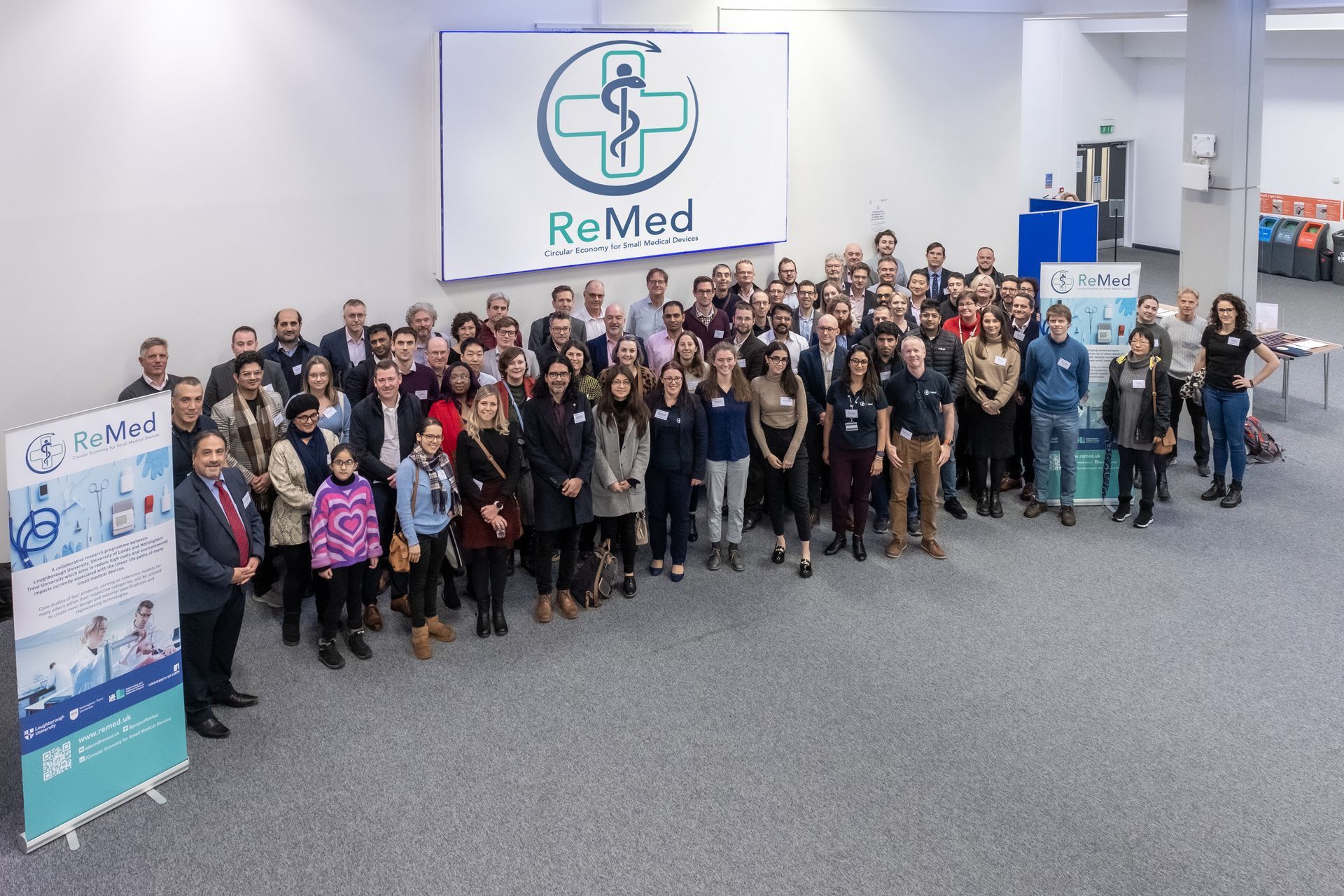
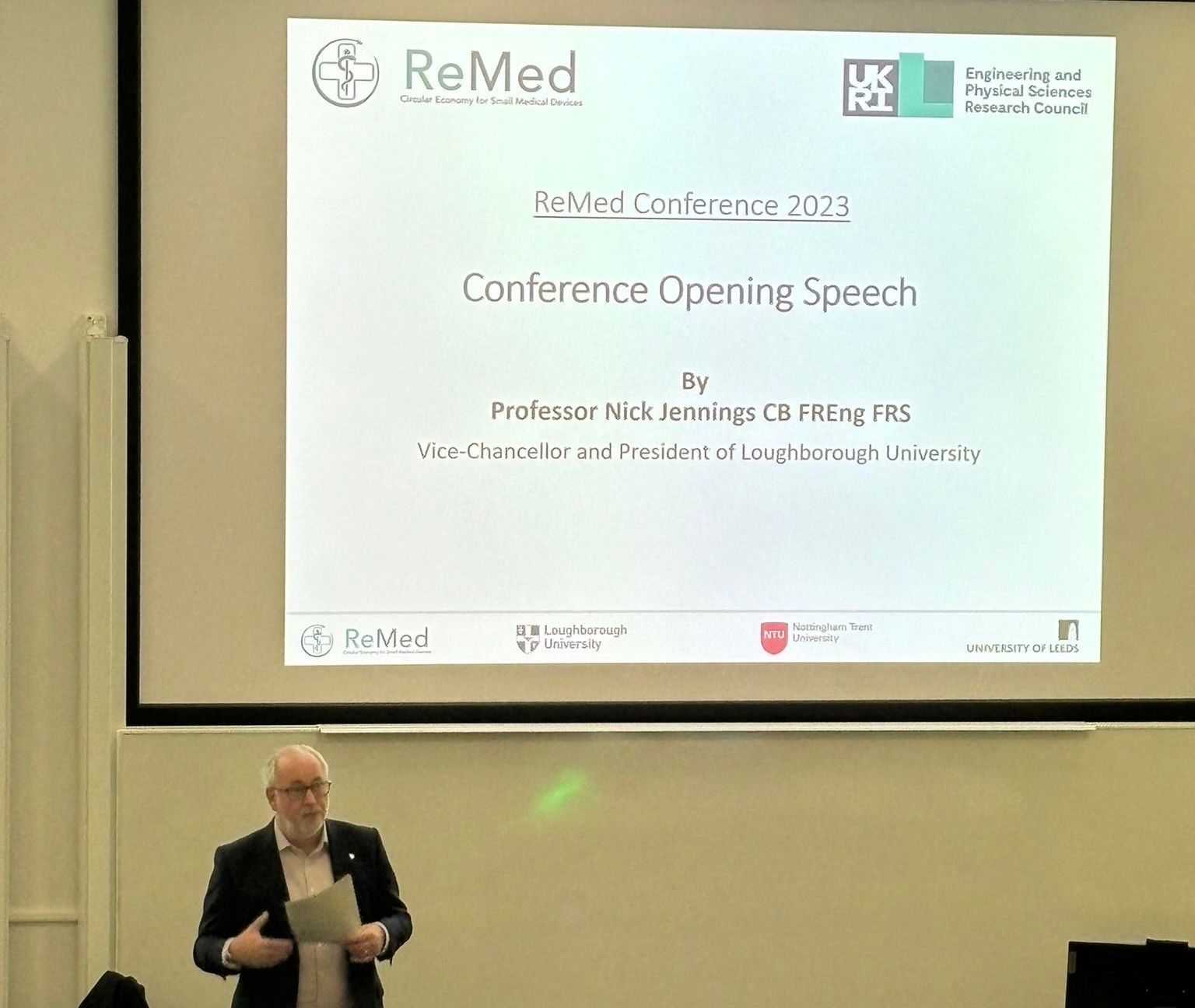
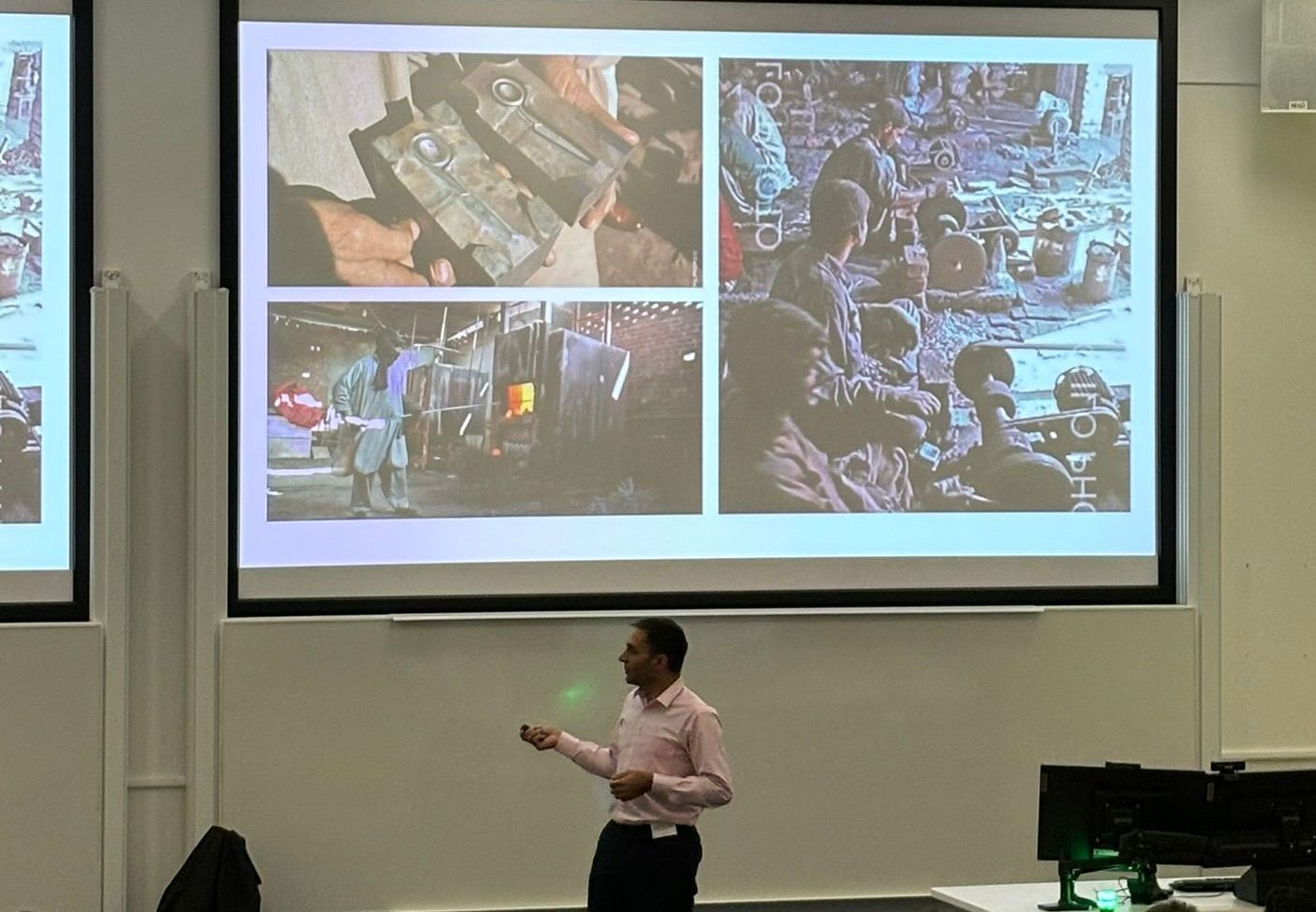
“At the ReMed Conference 19th December 2023, It was inspirational to meet a convergence of minds, all working together to unlock innovative possibilities for utilising a more circular economy approach in the small medical device arena. The collective wisdom shared helped to foster growth in this vital area, reminding us that together, we are catalysts for positive change.”
Chris Taylor, Philips UKI (Panel Discussion member)
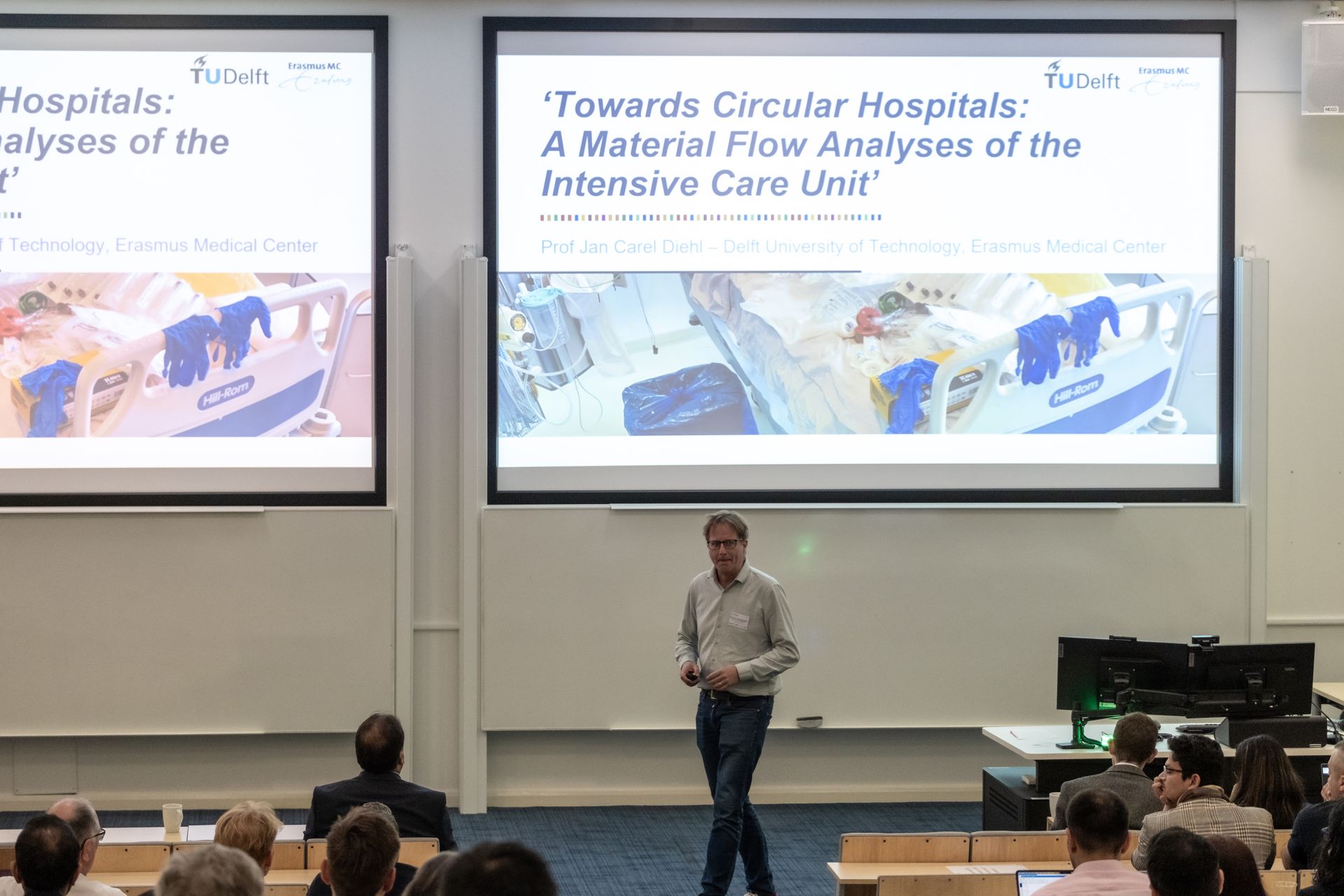
James Meadwell, Senior Research Fellow in Design and Manager of the Design Matter Group at Nottingham Trent University, discussed their journey of using Life Cycle Analysis for assessing the environmental impact of a product.
Dr Agnes Henson, from the Sustainable Procurement team - NHS England, presented a number of case studies on introducing remanufactured devices into hospitals and what lessons were learned.
Dan Coole, Managing Director, Surgical Holdings, talked about his experience of manufacturing and repair of surgical instruments and showed how ‘Surgical Instrument repair represents Sustainability in Action’.
The rest of the day was divided into 4 thematic sessions representative of the 4 workstreams being investigated within ReMed: circular Design, sustainable Materials selection, Operational changes and health economics, and novel advanced automated Reprocessing of medical devices. In each thematic session, talks were given by the ReMed researchers who presented progress within the ReMed project, and we were privileged to have an excellent guest speaker for each session, bringing to life real-world examples of sustainability within the healthcare and manufacturing sectors.
Prof Jan-Carel Diehl, TU Delft, brought an international strand to the conference by speaking about the work he has been involved with in The Netherlands on the Sustainable Circular Hospitals initiative. Prof Diehl illustrated how much waste was generated within an Intensive Care Unit per patient, and initiatives that have been investigated to reduce this waste, including: re-design of equipment (e.g. gloves dispensers), and educating and training clinical staff.
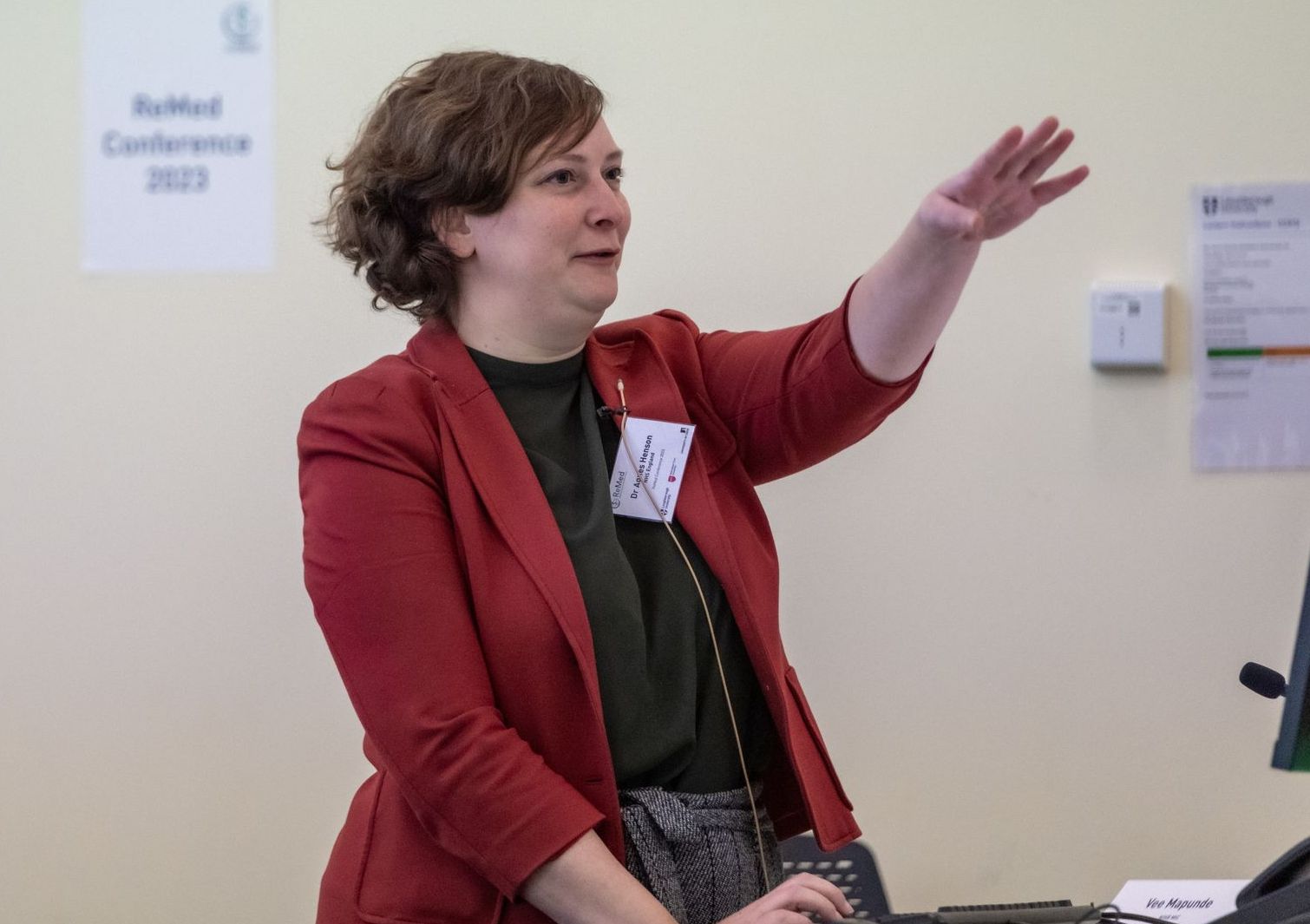
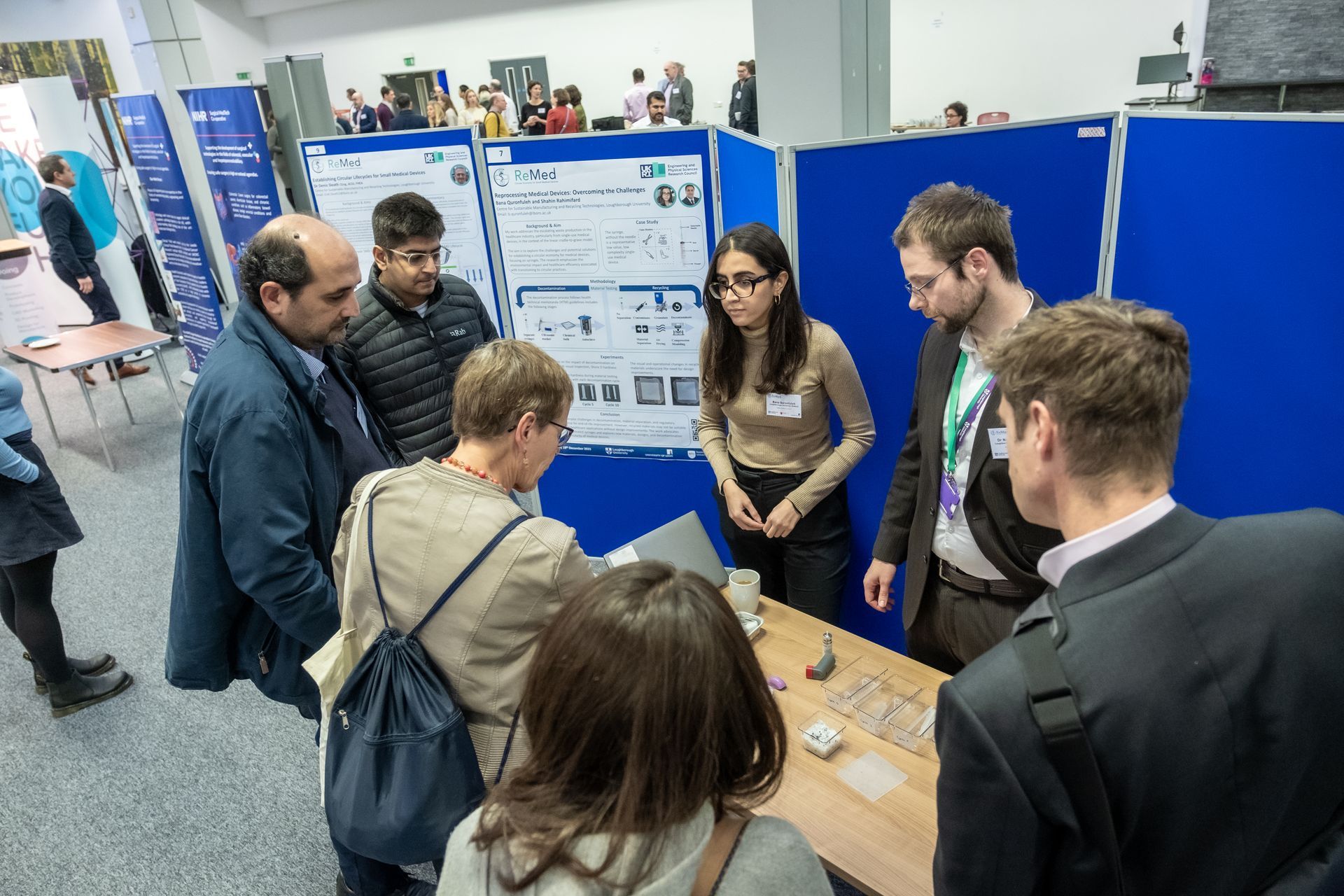
The conference hosted a vibrant exhibition session featuring companies and organisations from across the MedTech and healthcare sectors, including: Surgical Holdings, NIHR, pd-m Design, Imed Consultancy Ltd. and HealthTech Enterprise.
The poster session featured a number of posters from external presenters alongside ReMed researchers showcasing the research that is being carried out within the ReMed team. The winning poster prize went to ReMed researcher Bana Quronfuleh for her poster entitled ‘Reprocessing Medical Devices: Overcoming the Challenges’.
“As a project partner, ReMed 2023 was the perfect way to close out 2023 by showcasing the progress made in creating a sustainability framework for small medical devices. I am excited to see how this progresses in the next year, and how we can make moves towards implementation to support the sustainability agenda for medical technologies and healthcare technologies.”
Vee Mapunde, NIHR Surgical MedTech Cooperative
"The ReMed conference brought together key stakeholders and topics and really felt like the foundation of the network needed to develop Circular economy solutions and culture moving forward"
Dan Coole, Surgical Holdings
The day was rounded off with a Panel Discussion entitled ‘The Path to Circularity for Medical Devices’ and featured a panel of 4 experts from across the circular economy and Healthtech landscape.
The panel discussed challenges and drivers for progressing the circular economy for medical devices, and touched on issues including: limitations due to legislation, how to incentives reuse, and a range of national and global initiatives. When asked what the panel thought would be the single most impactful action for making the transition to a circular economy, the answers included:
- Skills, knowledge and awareness – educating and upskilling everyone across the workforce, sustainability should be the responsibility of everyone.
- Supporting decisions using change performance metrics which include sustainability.
- Cut waste – we can recycle and reuse thing but not using something in the first place is more impactful.
- Long-term funding in research and innovation programmes and developing long-term circular business models.
Panellist Keith Moore, from the Sustainable Healthcare Coalition said:
"We have a unique opportunity where clinicians, academics, research bodies and industry all see a need to act and will act in consort, in collaboration and legislation will pick up afterwards. We have a good government call that we need to make health systems more sustainable and make society more sustainable".
The conference was closed by Prof. Rahimifard, acting as the Conference Chair, who summarised the day by saying:
"Today’s presentations and discussions have highlighted some of the significant challenges but also many potential economic, societal and environmental benefits of a circular use of medical devices. It has also become clearly apparent that a multistakeholder collaborative initiative based on transdisciplinary approach is the only way to accelerate the transition towards a circular economy within the healthcare sector and to improve long-term resilience of supply of medical devices.
The ReMed project team looks forward to collaborating not only with national but also international organisations to build a global synergy for provision of equitable and affordable access to healthcare worldwide".
Resources from the conference, including the final programme, presentation slides and posters can be accessed by clicking the link below:
